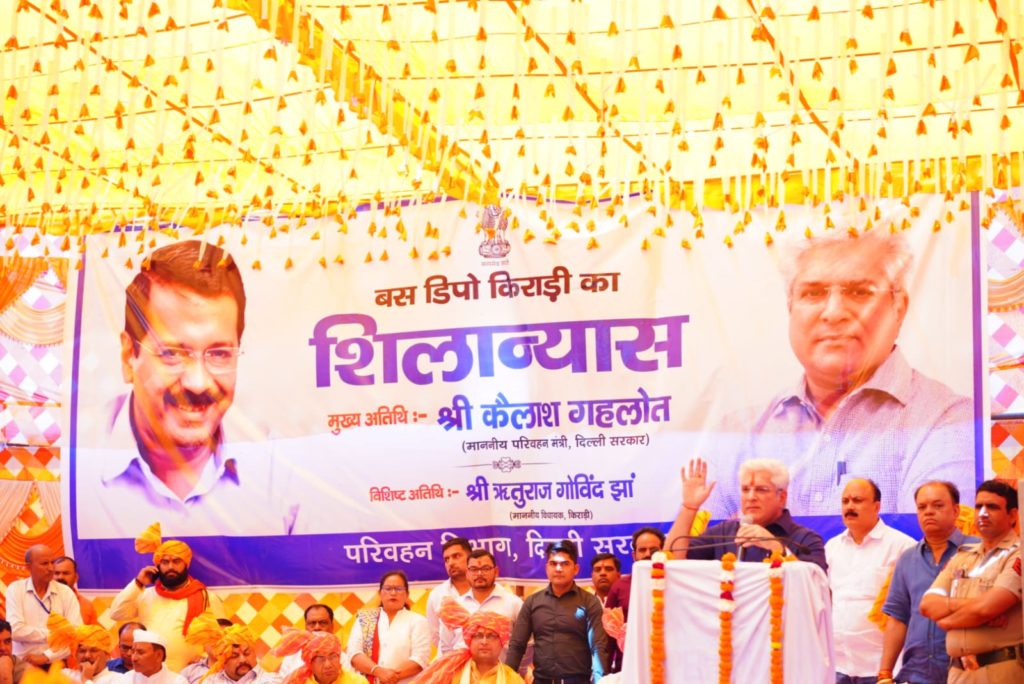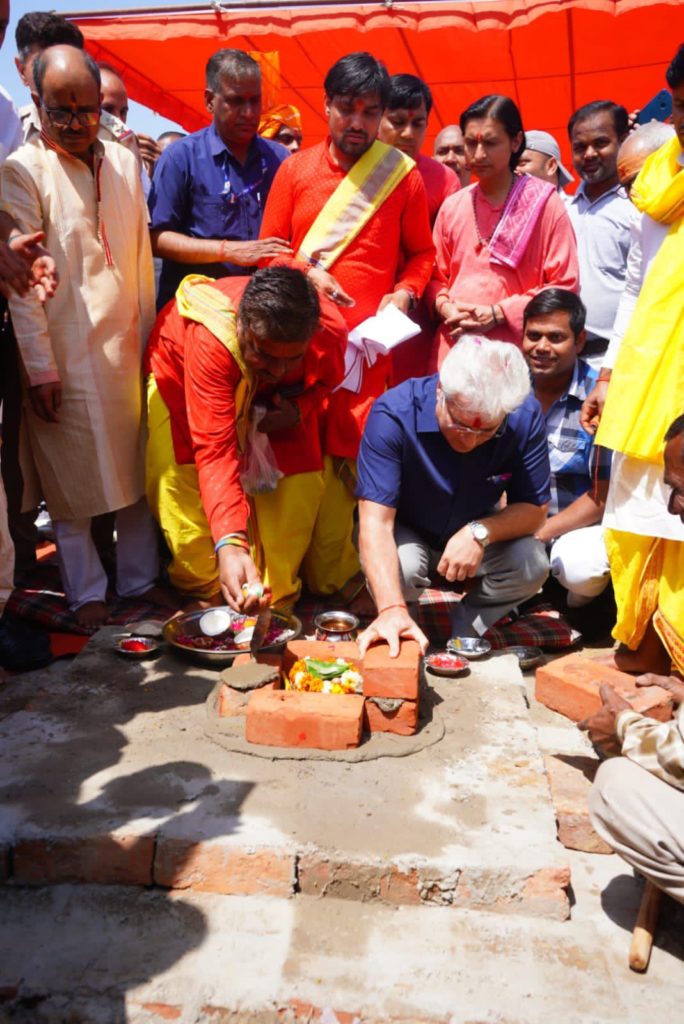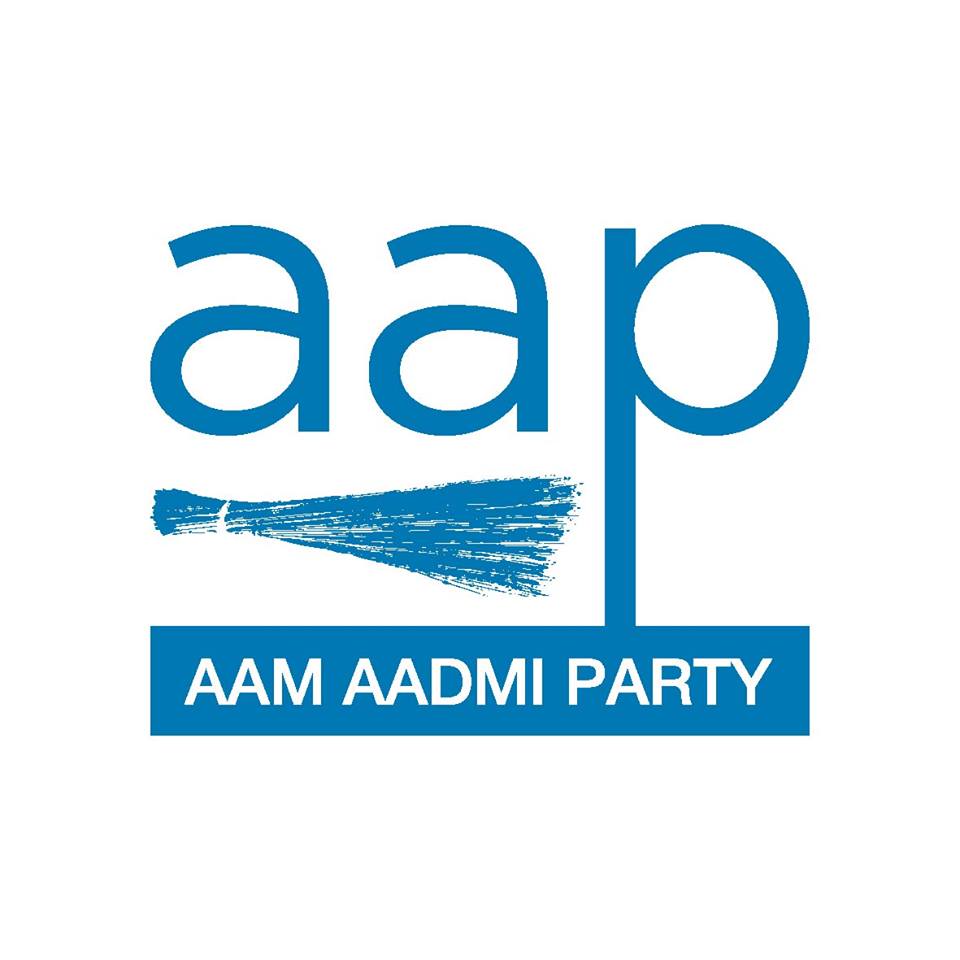Transport Minister Shri Kailash Gahlot today laid the foundation stone of the Kirari Bus depot, which is being constructed to house 140 buses. The depot will be spread across 5.4 acres and will be equipped with all modern facilities, including EV charging facilities. This is part of the Delhi government’s plan to construct 9 new bus depots across the city to house the continuously increased number of buses.

The Delhi Government is to spend Rs 160 crores to build the new bus depot at Kirari. This amount includes nearly Rs 40 crore paid to the Delhi Development Authority (DDA) for the acquisition of the land, Rs 40 crore to be paid to the Public Works Department (PWD) for the construction of the depot and nearly Rs 80 crore for the electrification of the depot.
Speaking at the event, Shri Kailash Gahlot said “In 2015, Delhi had 5,842 buses which has now increased to 7,379 buses in 2023. Under the visionary leadership of Chief Minister Shri Arvind Kejriwal, Delhi was ranked among the Top 35 cities with the best public transport in the world. With most of the land in Delhi being under DDA, it is the commitment of the Kejriwal Government to find land parcels for depots to house 10,000+ buses in the city in the coming times. Kirari depot is just one among the total of 9 depots to be constructed in Delhi for creating a modern, efficient and sustainable public transportation system. The Delhi Government will not hesitate to fund such a high cost of 160 crores if it means bringing convenience for the people of Delhi.”
Delhi’s new Kirari Bus Depot is set to be completed by December 2023, as part of the construction plan for 9 new depots including East Vinod Nagar 2, Narela, Daurala, Burari, Savda Ghevra, Kapashera, Gadaipur, and Chattarpur.
The Kejriwal Government’s efforts to increase the number of electric buses and construct new bus depots with modern facilities are commendable. Delhi has set a new record by achieving the highest number of buses in its fleet till date at 7,379 buses. The Delhi Government has set an ambitious target to increase this number even further by 2025, aiming to reach a total of 10,480 buses. Notably, 80% of this fleet, i.e., 8,280 buses, will be electric, reflecting the government’s efforts to promote sustainable transportation. This move towards electric vehicles is expected to significantly reduce the city’s carbon footprint by 4.6 lakh tonnes of CO2 emissions annually and improve air quality.

Further, in a significant move towards improving last-mile connectivity in the city, the Delhi Government is set to introduce 100 new Mohalla buses on the city’s roads this month. This marks the first time in Delhi’s history that small-size electric Mohalla buses will ply on the city’s roads. The government plans to introduce a total of 2,180 such buses by 2025. These buses are specifically designed to cater to areas where the width of the road is less or areas that are too crowded for 12-metre buses to ply. This move is expected to provide better connectivity and improve transportation access for people in these areas.

